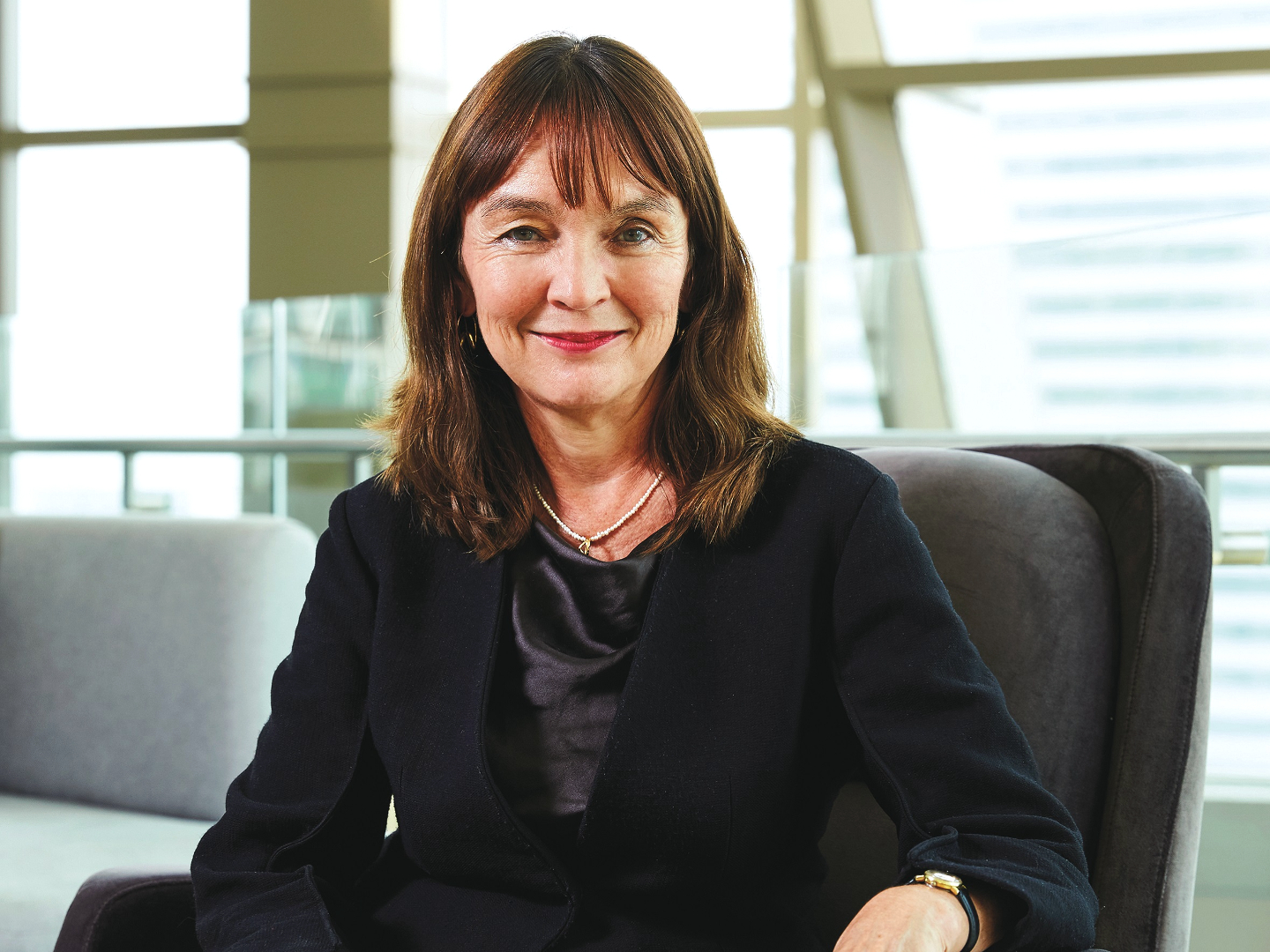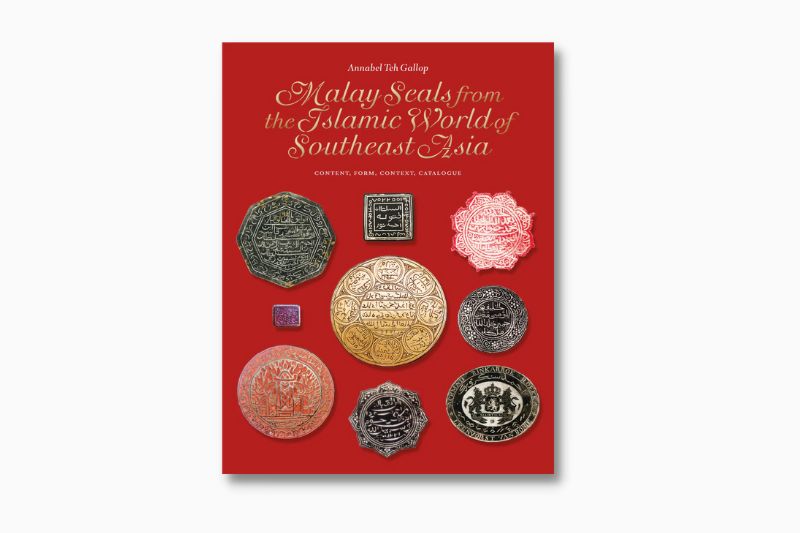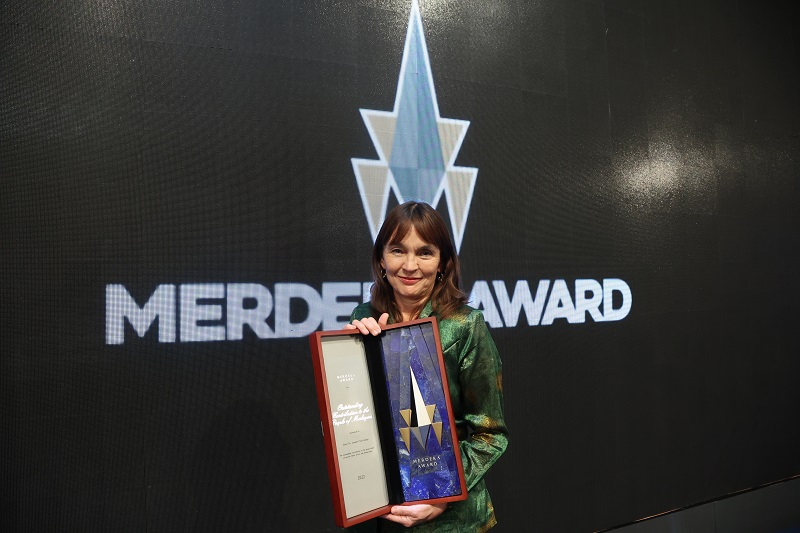
She is the world’s leading expert in the study and history of ancient Malay letters and manuscripts, seals and documents (Photo: SooPhye)
Head curator for Indonesian and Malay affairs in the South and Southeast Asia department of the British Library, Datuk Dr Annabel Teh Gallop may be based in London, but her heart is clearly in our part of the world. The world’s leading expert in the study and history of ancient Malay letters and manuscripts, seals and documents since she completed her doctorate at the School of Oriental and African Studies in 2002, the 61-year-old has travelled the world over the last three decades to promote manuscripts of the language in a way no one else has.
A human compendium and treasure trove of information on manuscripts in the Malay world, the Briton has surprised even Malay literary giants in Malaysia with her superior knowledge of the language and its history. From London to Singapore, Gallop lectures about these exquisite masterpieces with such eloquence and authority that any conference on Malay manuscripts, letters, documents and seals and the art of the Islamic book in Southeast Asia would be incomplete without her presence.
In 2019, she was elected a Fellow of the British Academy for her distinction in the humanities and social sciences for her work on the writing traditions, book cultures and the art of the Qur’an in Southeast Asia and the Indian Ocean world; Malay and Indonesian manuscripts, letters, documents and seals; and comparative Islamic diplomatics. Her most recent major project is the digitisation of priceless Malay documents to make them readily available to anyone interested in learning more.
malay_seals_from_the_islamic_world_of_southeast_asia.jpg

“It’s something that’s been happening in all libraries all over the world,” Gallop begins. “With the advent of the internet, our work has been totally transformed because it opened up possibilities that were unthinkable before. From the very first days of the library, we’ve had old Malay manuscripts and people would have to come to London to access what we had. With digitisation, you can put entire manuscripts on the internet and it can be read freely by anyone anywhere in the world, whether you’re in Marang or Batu Gajah. It’s been an absolute game changer, and it’s expensive, so it’s only possible by partnerships and donations.”
The British Library is able to track who is reading these manuscripts, and has launched targeted campaigns to reach out to the relevant readers. Gallop would blog about each manuscript as it was being digitised, and these were then promoted on social media. “Facebook was a very effective way in engaging with audiences, particularly in Malaysia. We get statistics from where users are based. After the US, UK and India, our largest number of readers are from Malaysia, and then, Singapore. There have been hundreds of views each month since the manuscripts were digitised.”
Digitisation also benefited Gallop and her team, who could then study the manuscripts more easily and, therefore, learn more about them. For example, only through digitisation did she make some major discoveries — one was that the names on manuscripts often refer to the artists who worked on the documents, and not necessarily the writers.
But to what end is this digitisation process, and how does it relate to the average Malaysian? Gallop says that outside of the traditional audiences like members of academia and researchers, there is a huge community of Malaysians that are avid history fans, and they enjoy being able to pore over these old manuscripts and discuss them in online forums. Again, Gallop says, social media has been critical in bringing together these individuals and providing them the space to engage with each other. “Some of the most rewarding exchanges I’ve had haven’t been with officials, but individuals who want to find out the history of where they live and where they come from. There is a much bigger undercurrent than is generally recognised.”
dato_dr._annabel_teh_gallop_2022_merdeka_award_recipient_-_outstanding_contribution_to_the_people_of_malaysia_3.jpg

A good example is local publisher Buku Fixi, who picked up on Hikayat Raja Babi once it was digitised and found a scholar to translate the manuscript from Jawi to Rumi. The book is the only translation of the original manuscript, penned in 1775 and today, a copy of the book is in Gallop’s possession. “The manuscripts have a major impact on society, people just take them and run with them. There is a much larger following for Malay manuscripts than is perceived.”
One of her present projects is the art of the Quran in Southeast Asia — but rather than look at the text, she is studying the decoration in these manuscripts. “The text in the Quran is the same wherever you are from, but its decorations are different — when you look at one, you can tell where it is from, whether it is from Africa, China or Southeast Asia. In this region, there were certain centres of artistry, but what I’ve found is that the finest Quran manuscripts made in Southeast Asia are from Terengganu. They were so beautifully done that they were actually exported to neighbouring countries.”
Over the years, Gallop has found that her work has extraordinary untold effects on people’s identities and understanding of history. “I am constantly aware of how lucky I am, to have a rewarding job that I enjoy, which enables me to work on extraordinarily important historical materials,” she says. “I am, therefore, always happy to hear when some of the outcomes of my research, which I try to disseminate widely through publications, exhibitions, talks, seminars and social media, are of interest and significance to Malaysians.”
Datuk Dr Annabel Teh Gallop is one of six recipients of the Merdeka Award this year.
This article first appeared on Aug 29, 2022 in The Edge Malaysia.


